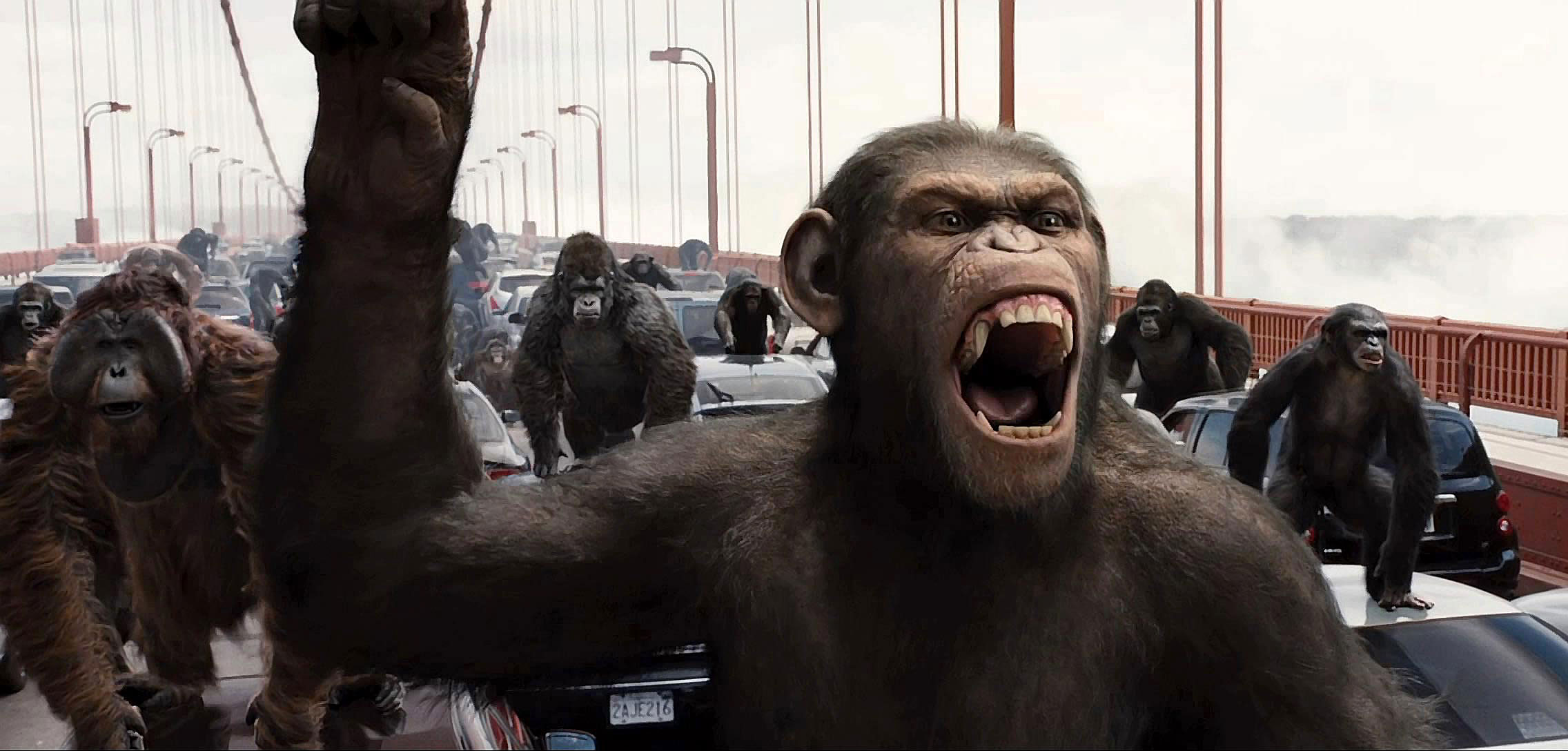 This may be the age of the reboot, but one still has to wonder why The Powers That Be keep trying to revive the “Planet of the Apes” franchise—a series whose success rate has steadily dwindled with each new incarnation. This is not normally a sound business model, and yet after years of trial and error, “Rise of the Planet of the Apes” has come to fruition, righting this wayward vessel. While the latest addition doesn’t exactly live up to the 1968 classic, it surpasses its poorer forbearers in both wit and entertainment value.
This may be the age of the reboot, but one still has to wonder why The Powers That Be keep trying to revive the “Planet of the Apes” franchise—a series whose success rate has steadily dwindled with each new incarnation. This is not normally a sound business model, and yet after years of trial and error, “Rise of the Planet of the Apes” has come to fruition, righting this wayward vessel. While the latest addition doesn’t exactly live up to the 1968 classic, it surpasses its poorer forbearers in both wit and entertainment value.
“Rise” centers on Will Rodman, a brilliant young scientist desperately searching for a cure for Alzheimer’s. The new drug has yet to be tested on humans; however, its effects on test chimpanzees offer significant evidence that it can not only repair the brain but also enhance it. When one of the lab chimps goes berserk and is forcibly put down, Will is left with her newborn child, whom he takes home and affectionately dubs Caesar. Will and Caesar spend years together, with the former documenting every step of the latter’s development, until one day Caesar’s animal impulses get the better of him.
The film’s success lies in its approach: not corny in a self-aware mode, not overly reliant on its predecessors’ blueprints, focused on the more—for lack of a better term—human aspects of the story. This is not simply a smash-‘em-up blockbuster, though it has those moments; and it’s not a by-the-book retelling. “Rise” is instead a compelling story about love, humanity, and freedom, peppered with action and a sense of doom that thematically links this film to the original.
As a stand-alone movie, “Rise of the Planet of the Apes” is as entertaining as it is intelligent. The only real problem lies in plot work foreshadowing the 1968 film. However it may be perceived in the popular lexicon today, the original “Planet of the Apes” functioned as a potent commentary on man’s own destructive nature and the nuclear arms race, climaxing with Charlton Heston’s famous discovery and subsequent iconic line. But by reworking the story so that apes came to power as a result of a virus, the filmmakers have removed the story’s key component. Yes, the virus is man-made, but this still retcons the crux of the original film, leaving us with a Frankensteinian revival rather than a cautionary morality play.
Nevertheless, Rise of the Planet of the Apes teems with summer blockbuster fulfillment. It’s certainly fun, so long as one separates the reboot from the original.
